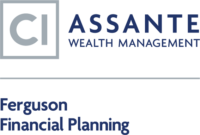How do I make downsizing work financially?
Are you nearing retirement age and considering downsizing your home?
Nowadays, there’s so many different approaches to downsizing and how you go about it depending on your unique needs.
We work with a lot of folks in Southern Ontario to help them answer the question: Do I have enough?
In other words – is the cash that I get from the sale of my home, which may be my biggest asset -is it enough to support me through my retirement years? How do I make it work financially?
So, if you are looking to downsize, we’ll present you what your cashflow could look like over the next 10 to 20 years.
We’ll explore how the cash you receive from selling your home, your biggest asset, can truly support you throughout your retirement years.
Top concerns
When this topic specifically comes up, a lot of questions arise. Some of the questions I get asked often are ones like:
- My home is the biggest investment I own. If I sell it, how do I make sure I don’t run out of money later?
- I want to leave money to the next generation
- How do I avoid taxes when I sell my home?
- How can I absolutely guarantee my income because after this, I have nothing left?
Now everyone has a different background and different set of circumstances, but it is reasonable that if you own a home in Southern Ontario, it could be worth $1M, $1.5M or even $2M.
3 potential options
Today I’m going to highlight some of the three most popular options which are to:
- Sell my home and rent
- Sell my home and buy a retirement condo
- Sell my home and buy a condo unit
The numbers we will show you are based on very conservative return and inflation estimates. Assume a 5% return on investment and 3% inflation rate.
You may consider these guaranteed. We are not considering risky stocks or things like Bitcoin or Facebook. We are looking at simple, GIC style and bank stock investments. To reiterate, these are guaranteed cashflows you could get today.
Option 1: If I sell my home and rent for $5,000 per month – how long will my money last?
If you are selling your home and using it to fund your future rent expenses, you don’t want to invest in anything too risky. So the scenarios I have provided below assume a very low risk investment – like a GIC, which provide guaranteed rates of return at no risk.
- If you sell your home for $1,000,000, you’ll have enough for 20 years worth of rent payments
- If you sell your home for $1,500,000, you’ll have enough for 34 years worth of rent payments
- If you sell your home for $2,000,000, you’ll have enough for 50 years worth of rent payments
Remember, when you sell your primary home there is no tax. So the profit goes to you and not to CRA. This scenario gives you the flexibility as well to access more cash in the event something happens as you have your house sale proceeds in the bank.
Option 2: If I sell my home and purchase a retirement condo for $500,000 with monthly condo fees of $2,900 how long will my money last?
Based on this option, these are the estimates:
- If you sell your home for $1,000,000, your money will last for 17 years
- If you sell your home for $1,500,000, your money will last for 42 years
- If you sell your home for $2,000,000, your money will last for 50+ years
Here, the money is going to last quite a bit of time, especially above that $1 million mark. This gives a lot of flexibility in the event your medical or lifestyle expenses increase. Additionally, it provides an opportunity to gift money to children or grandchildren if that is important to you.
Option 3: If I sell my home and purchase a condo for $800,000 with lower condo fees of $650/ month how long will my money last?
- If you sell your home for $1,000,000, your money will last for over 30 years
- If you sell your home for $1,500,000, your money will last for over 50 years
- If you sell your home for $2,000,000, your money will last for over 50 years
With this scenario, you still own an asset worth $800,000. This allows more flexibility to move in the future. In the event there’s a retirement condo that you can purchase with a slightly cheaper capital cost, but a higher monthly cash flow cost, you can take advantage of that and other opportunities.
Now that we’ve covered lots of numbers and situations, you might not be wondering what you can afford and how long your money can last.
We can help
We work with business professionals, executives, and families to grow and protect their wealth using our Wealth Plan formula. To discuss our approach and if it is the right fit for you, we invite you to schedule a no-obligation discovery consultation.

